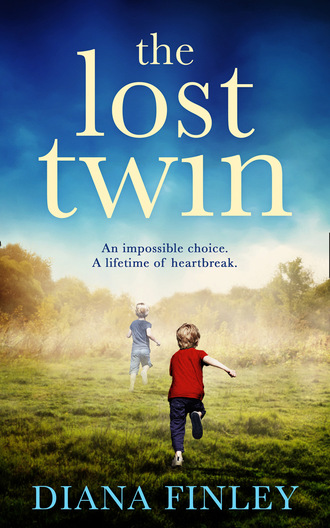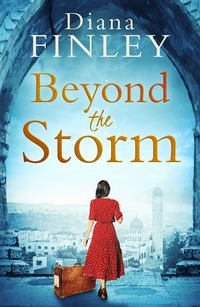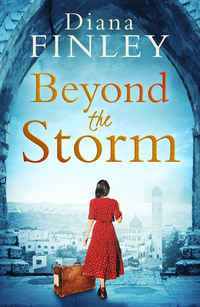
Полная версия
The Lost Twin
The man steps aside to let me enter the house. I squeeze past him. He pulls a rope switch, and like a music hall performer, I am suddenly illuminated as I stand in a pool of light from a bare ceiling bulb above my head. Mr Finch looks closely at me.
‘Blimey girl! They didn’t tell me you was bringin’ a baby. That’s not really part of the contract. Oh well, now you’re ’ere love … never mind. You’ll ’ave to keep it well quiet, mind, or the other guests might complain.’
He exhales noisily. ‘Right, now, the ground floor is where I live, so all these rooms are out of bounds – don’t forget that, will you? OK, follow me, I’ll show you to your room.’
He stomps noisily up the stairs and onto a small, gloomy landing, lit by another unshaded bulb. There are five doors that lead off the landing and Mr Finch opens the one at the very end on the right.
‘Bathroom …’ he informs me. ‘It’s every guest’s responsibility to keep it clean. You share it with the other three residents.’
The bathroom is so tiny, Mr Finch has to step back into the gloom of the landing again, in order for me to enter. I wonder briefly whether anyone could actually sit on the toilet and still shut the door, without drawing their knees up to their chin. Next to the toilet is a tiny, stained washbasin, less than twelve inches across. I do a quick mental calculation of whether I could bath Barry in it. I decide we will manage. Opposite the basin is a shower scarcely big enough for a normal-sized human being to turn around in it! The shower is screened from the rest of the room by a plastic curtain, frayed and shredded at its lower edge, and made stiff by age. Patches of black mildew stain the walls and ceiling.
Mr Finch motions to me to come out. He leads me to the door marked ‘4’, furthest from the bathroom. He jangles a set of keys in his hand and produces a separate one for me.
‘Right, come on then, girl. This ’ere is your room. This is your key. I don’t ask for no deposit, ’cos I know me guests don’t have no money. But, it’s ten pounds to pay if you lose it.’ He glares ferociously at me. ‘Ten pounds! So make bloody sure you look after it. And keep your door locked at all times. Fred, over there in room one—’ he lowers his voice and points to the door next to the bathroom ‘—can get a bit frisky when he’s got a few pints inside him, know what I mean? He doesn’t mean no harm, but some of the girls don’t like it.’
He opens my door. The room, like the rest of the house, is tiny. There’s a narrow single bed, a small table and stool, and a tiny chest of three drawers. It looks as if the room was intended for a child. There is just enough room to walk between the bed and other furniture to the window, provided the occupant shuffles sideways like a crab. In fact, the window is only half a window; the other half disappears into a partition wall. Clearly a larger room has been divided into two at some stage of the house’s history, perhaps to squeeze extra guests in.
Oh well, I think, just as well that we have so few possessions. There’s nowhere to put anything.
‘There you are,’ says my landlord cheerfully. ‘Nice and cosy. The bed’s got two sheets and two blankets, and a pillow, and that’s your towel.’
He indicates a faded, greyish piece of material folded on the bed.
‘I see … er … thank you, Mr Finch, but … er … do you have … a cot? For the baby?’
‘No, I don’t. It’s not listed by the council as one of the requirements.’
‘Oh …’ I say, crestfallen.
Mr Finch looks at the baby thoughtfully. He’s not an unkind man.
‘Tell you what though, love. I’ve got a cardboard box downstairs. Got it from the supermarket this morning. Should be about the right size – he’s not very big, is he? You can have that. You might have to put the bedside table on top of the chest of drawers, like, if you want the baby on the floor next to the bed, that is. I’ll bring you an extra blanket too.’
I hesitate for a moment, and then realise there’s no alternative.
‘Thank you, Mr Finch, that’s very kind of you.’
***
Barry is quite snug in his cardboard box that night. I’m relieved to see that the blue blanket Mr Finch has brought is clean. It’s thin and worn, but I fold it carefully, so that part of it forms a soft mattress over the base of the box, leaving a layer on top to serve as a cover. My own bed is hard and lumpy, but after feeding Barry, we both sink into a deep, exhausted sleep. I don’t wake until the baby’s hungry cries penetrate my consciousness a few hours later. It’s still dark. At least it’s easy enough to lean out of the bed to lift Barry from his little makeshift cot beside me and wrap the bedclothes around both of us while I feed him. Still plenty of milk, I note with satisfaction. I must have been given a boost by that wonderful steak pie Sylvia gave me, God bless her. I close my eyes and recall the delicious savoury smell of it, the succulent cubes of meat, the crisp pastry, the rich gravy soaking into the mashed potato. It was more than I’d eaten in all the frugal weeks of my stay at St Agatha’s. Just thinking about it makes my mouth water.
Barry settles straight back to sleep after his feed, but I’m troubled by anxious thoughts of the future, and the past. Instead of relaxing into sleep, my mind keeps returning to the dreadful scene with Sister Bernadette – the confrontation that led to Donal being taken from me.
I stared at Sister Bernadette across the expansive, hostile plain of her desk. I could see her thin lips moving, but it was as though she was talking a foreign language, or perhaps as if she was underwater, the sounds making glugs, plops and bubbles … not real words; there was no meaning to them – nothing I could comprehend.
‘So you see, Marie,’ she said ‘you should be truly grateful that you’ll be relieved of the care of one of your children. You are indeed fortunate that this very kind couple, with excellent background – well-to-do people from a fine, respectable … Christian family, have chosen to adopt one of your sons. They have been shown photographs of both boys, and perhaps surprisingly, they have chosen the second-born child, who is of course the less robust of the two. No doubt their choice comes from a deeply charitable sense of sympathy, and a wish to help the most needy of the two. Very worthy, very admirable. Thank goodness there are such people are in the world, hmmm?’
She glared at me, as if waiting for some indication of gratitude, which was not forthcoming.
I glanced down at my babies, each sleeping peacefully in the crook of one of my arms.
‘Of course, whether they will retain the Christian name you have given the boy,’ Sister Bernadette continued, ‘is entirely up to them. They may well decide to rename him, to make him theirs. That is their right, you see …’
On and on she went, relentless, merciless. I tried to understand what she was saying, but I felt so faint, so nauseous, I couldn’t take it in. Her words fell like raindrops on a puddle, creating momentary discernible rings and then disappearing, lost for ever – nothing my brain could hold on to.
‘But … but they’re twins, Sister. They can’t be separated, they’re both my babies. I’m their mother. I can take care of them. I love them, both of them …’
‘Yes, well, of course that is the selfish view I might have expected from you, Marie Tully. If you truly love them as you say, you must consider what is best for them, not for yourself … never mind what you want! These good people are wealthy, respectable, secure; they have a beautiful home. They long for a child to love. Your boy will want for nothing. He will have the best education, a fine future. What can you possibly give him? You haven’t even enough milk for both infants!’
Sister Bernadette snorted and glared at me. She shook her head in scorn and exasperation.
‘A life of poverty and insecurity! A squalid flat somewhere, at best,’ she continued. ‘Just how do you expect to support one baby, let alone two?’
She turned and fixed me with a cold stare.
‘Perhaps, just perhaps, you can manage to care for one child, taking in washing at home, or doing some other lowly work … cleaning floors maybe …’
I was silent for a moment, contemplating the bleak picture of life Sister Bernadette was painting for me.
‘Yes, oh yes, now you can see it, Marie, can’t you, hmmm? That’s how life would be for you. Is that what you want for yourself, for your boys? No, I don’t think so …’
She paused to allow these words to penetrate.
‘I know you’re not all bad, girl, but just think; think of the future. With only one child, and some help from the state, you may be able to manage – though don’t for a minute think it will be easy!’
I looked down at the tops of my tiny sons’ heads. I shook my own head slowly. My lips trembled. Tears cascaded down my cheeks. Sister Bernadette seemed to sense a weakening of my rebellion. Her tone changed.
‘So, just think of this, Marie,’ she crooned softly, soothingly. ‘If, if, you agree to let the baby go – to go to this wonderful home that’s being offered – not today, not tomorrow … but in about four weeks’ time … if you agree to sign the adoption paper – just for the one child – well then, I think we can agree for you to keep the other one. All that would remain, is for the baby in question to have a thorough health and development check.
‘What about that now – hmmm? In fact, we can even give you some help by way of finding somewhere to live, just to start with, of course, for you and the other baby – applying to the council you see, and maybe even getting some support for childcare to enable you to find a little job … Now wouldn’t that be a fine thing? What else can you possibly do, girl?’
So here I am now: living the life Sister Bernadette foresaw for me.
How am I ever going to earn enough money to support us? London is so expensive. Somehow, I’ll have to pay rent somewhere, and buy food to keep us going.
I don’t know a soul in London, apart from Elsie, who lives with her mum and dad in their small council house in Shoreditch, and my new friend Sylvia. I’ll have to find my own place somehow. How is the critical question. I’ve neither qualifications nor experience to apply for jobs, and anyway what work could I possibly do, with the baby to care for?
I try to think positively; if I was an African woman in the bush, I’d simply tie the baby onto my back with a length of cloth, and get on with working in the fields, or cooking over a fire. I rather wish I were an African woman. At least it’s probably warm in Africa.
But I don’t think London has any fields to work in. I’ll have to find something different to do. What am I good at? I have plenty of experience in cleaning, after all that skivvying at St Agatha’s. I could scrub a floor for England and Ireland put together – that’s for sure! I’m not a bad cook either; I helped me ma enough times at home. But the thing I’m best at is sewing. I had a real way with a needle, Ma always said. Maybe somehow I could use that skill … but how?
Chapter 3
1972
Marie
If it hadn’t been for Sylvia, I’d never have met Mrs Goldstein, never have considered the opportunity of working for her. How different my life would have been. We saw the advert for a housekeeper in the paper. It caught my eye, but without Sylvia, I would never have dared to contact Mrs Goldstein about the job. I thought there was no chance that she’d even consider me when she heard I had a baby, now a toddler – an illegitimate baby, who would have to come to live in her house too. It was Sylvia, always an optimist, who encouraged me to ring the number.
‘Go on! You don’t lose anything by giving it a go … Nothing ventured nothing gained!’
I was trembling when I told Mrs Goldstein about Barry. She paused in our conversation, as if she needed to absorb this information. I waited for her to say she couldn’t have a mother with a baby for the position, but she didn’t. After a minute she said, ‘Well, how lovely that you have a little child, my dear! I am very fond of children. Please do come to see me, and we can talk together and decide whether we like each other. I’m quite sure that we will.’
She gave me directions for finding the house. I thought she sounded nice. She sounded gentle and kind. She sounded foreign too.
‘Why don’t you come here tomorrow morning at about eleven o’clock, Marie, and we can have some coffee together? Blackheath is the other side of London, south of the River Thames. You will need to take a bus to Charing Cross or the underground to Trafalgar Square, and then it’s a short walk to Charing Cross. Then from Charing Cross station you take a train to Blackheath station. It’s not very far – maybe twenty minutes on the train.’
Hearing this, I suddenly panicked and couldn’t think of what to say. A soft ‘ooh’ of disappointment escaped my lips, though I hadn’t meant it to.
‘Marie? Are you still there, my dear?’
‘Yes … sorry,’ I said. ‘I’m here. I … I was just thinking about the train … I was just wondering … er …’
‘Ah … I think you are worried about buying a ticket. Am I right?’
‘Yes. I’m sorry, Mrs Goldstein. I … I was just wondering how much it might cost …?’
‘Marie, can you maybe borrow the money from someone you trust? I will pay you back the cost of the journey tomorrow – whether or not we decide that the job will suit you. Do you think you can do that? I really would like you to come. I think I will like you.’
I looked at Sylvia. She had helped me so much already. Was it fair to ask her for a loan on top of everything else? I absolutely had to try for this job. What other chance of work did I have? Meanwhile, Sylvia was nodding her head madly like a mechanical puppet. She must have understood what was going on.
‘Thank you so much, Mrs Goldstein. I will ask my good friend Sylvia to help me … and then I’ll pay her back as soon as I can. If you’re sure, I’ll come to see you tomorrow at eleven.’
Sylvia started jumping up and down like a dervish, grinning and gesticulating ‘thumbs-up’ at me.
‘That’s good,’ Mrs Goldstein said, ‘and bring little Barry, won’t you? I would have been so disappointed if you didn’t come. You have a very kind friend in Sylvia, I think. Now listen carefully and I’ll explain exactly how to get here. Have you got a pencil and paper?’
Sylvia leapt up and hugged me when I put the telephone down, pulling me into a crazy dance.
‘It’s a real chance for you, darlin’, and they don’t come often, do they?’ she said. ‘Somewhere to live, and a job into the bargain! She sounds such a nice lady. Don’t you worry about the fare money – I’m not bothered about it. I want to see you and Barry settled.’
***
I step off the train and on to the platform at Blackheath station carrying Barry in my arms. We make our way out onto the hectic street, busy with shops and cars, and a crush of people scurrying about. My hand clutches the precious instructions, crumpling the paper into a damp ball, even though I know them off by heart. Barry is alert and curious, turning his head eagerly from side to side, trying to take everything in. He’s starting to walk quite well, but it’s too far to the house and I don’t want to be late. So I have to carry him. He’s getting very heavy now.
By the time we’re out of the bustling centre of Blackheath, and into the quieter streets, twenty minutes have passed. I’m getting tired, but we’re nearly there. We come to a leafy, spacious street. Linden Avenue, that’s right, it’s Mrs Goldstein’s street. The houses are large and detached, quite varied in shape, but each one is set in a verdant garden, with bushes and trees. It’s very different from the tightly built, older terraces I remember of Mr Finch’s area, where most of the front doors opened straight onto the pavements – and even more different from the council houses round my block in Shoreditch.
I check the address on my scrap of paper. Number 19 Linden Avenue. This is the house, a fine, double-fronted brick building. The front garden looks lush and thick with large shrubs. Early spring flowers, like bright stars, dot the lawns. A curving path winds through this foliage towards an imposing front door. I gaze up at the wide windows on the upper floor. There are further smaller windows under the roof, set into the eaves. Barry wriggles, wanting to be put down. He toddles on up the path, stamping his feet.
The house looks quite old, maybe built in the last century, but it looks very well maintained. As we approach, I notice the window frames are all freshly painted white, as is the front door.
I hesitate nervously on the front step, trying to imagine us ever actually living in such a grand house. Before I’ve had time to ring the bell, the front door is flung open by a tall lady, quite old, maybe seventy or even more, with grey hair piled on top of her head. Mrs Goldstein. She’s smiling broadly and reaches out both her arms to welcome us.
‘You must be Marie – and Barry! I’m Erna Goldstein. I am so very pleased to meet you. What a darling little child! Hello, Barry; hello, my sweetheart. Welcome to my home. Come in, come in! Let us have some coffee together, and we will talk – and then I shall show you around.’
She leads us to a comfortable sitting room and tells me to take a seat, then sits herself down on the sofa opposite. There’s a tray with coffee things: a white pot and two cups and saucers, with a plastic mug of juice that she gives to Barry. She points to some toys on the floor in the corner of the room.
‘Those are for Barry to play with, if he would like. Now, tell me a little bit about yourself, Marie. Do you have experience as a cleaner?’
For a moment I had forgotten that this was supposed to be an interview.
‘Yes, Mrs Goldstein, I have always helped my mother at home, being the eldest girl in the family.’
‘Have you now? I’m sure she taught you lots of useful skills.’
‘She did,’ I reply eagerly. ‘I can cook quite well … erm, but nothing too fancy. I can clean windows and hoover and … and scrub the house. I’m used to doing washing and making beds … and I’ll do any other jobs that need doing. I’m good at sewing too …’
I explain I’ve been doing a part-time job as a domestic help and nursemaid for a lady with a small child of three, while she’s at work. That enables me to pay the modest rent in a temporary, small bedsit the council has given us in a block in Shoreditch, near my friend Elsie, but now the council need it back, so Barry and I have to find somewhere else to live.
Mrs Goldstein just smiles and says, ‘Well, I’m so glad you found me! How wonderful to have so many skills and such useful experience. Now when you’ve finished your coffee I’ll show you all round the house. I hope you’ll like the little flat you and Barry will be living in.’
So I guess that means I’ve passed the interview, that I’ve got the job! It seemed to happen without me noticing. Barry and I move into Mrs Goldstein’s house two weeks later.
***
Many mornings, as I emerge from sleep, I wonder briefly if it’s true, that it isn’t a dream. We really do live in the beautiful house – warm, comfortable, and safe.
In the two weeks since we’ve been at Mrs Goldstein’s we’ve already developed a routine. I begin each day by getting Barry up from his cot, and then washed, fed and dressed. Then while he sits strapped into his highchair or plays on the floor with his toys, I make Mrs Goldstein her usual light breakfast of coffee, a boiled egg and a slice of the dark brown rye bread she prefers, and which I have learned to buy at a small delicatessen in the village, run by a Polish couple.
Twice a week I hoover and dust the whole house, each time concentrating on a different room for a more thorough cleaning. Several of the rooms in the large house are unused, except very occasionally when a distant relative or old friend of Mrs Goldstein’s comes to stay. She doesn’t have a lot of washing, but I do it regularly, carefully making up her bed every week with fresh sheets and pillow cases.
She often asks me to join her while she has her mid-morning coffee, or to accompany her on a walk to the nearest shops, or occasionally to the park. I love these times. One of Mrs Goldstein’s friends kindly gave me a pram, which her grandchild had outgrown. It converts into a pushchair, so I can take Barry wherever we go without the strain of carrying him. He’s growing bigger and heavier by the day. No wonder, the amount of food he eats!
In the evening I cook us all a meal. Gradually, I’ve been expanding my repertoire, at first under instruction from Mrs Goldstein, and then by studying her numerous cookery books. She is used to different food from the plain fare I grew up eating and cooking, so I’m learning to make all sorts of unusual dishes – wiener schnitzel, Hungarian goulash, coq au vin, and other foreign-sounding – and tasting – dishes. I love their exotic names, and the ingredients: veal, red and green peppers, spices, garlic, and even wine! I’ve never tasted such things before. Generally, though, we both prefer to eat quite modestly and simply. Usually Mrs Goldstein eats her supper from a tray and listening to the classical music she loves, while I take my share, and Barry’s, upstairs to our warm, cosy little ‘flatlet’ at the top of the house. Up there we have everything we could possibly need.
Mrs Goldstein even bought us a little colour television. It’s a great wonder to me, bringing the world in all its reality into our home. I’d never seen such a thing before – the few televisions I’d seen in other people’s houses back home had had dull black and white pictures, even though we all thought them a miracle at the time. Of course, Barry loves the cartoon shows like New Zoo Revue and the Bugs Bunny Show, but after he goes to bed I watch my favourite programme: Bewitched.
My housekeeping tasks only keep me busy for part of each day; for the rest of the time I’m free to play with Barry or take him out. I’ve also been developing my dressmaking skills, and have been using them to earn some extra money. Mrs Goldstein has recommended me to her friends. At first just repairs and alterations, and with the money I saved I managed to buy a second-hand electric sewing machine.
Now I’ve also been asked to make an outfit for one of Mrs Goldstein’s friends, for her daughter’s forthcoming wedding. She asked me to make up a pattern she’d bought, together with the material: a fine blue silk. I know how important the dress is for such a special occasion so I want it to be perfect.
Dear Erna Goldstein. How I bless the day I answered that advert for a housekeeper to care for an elderly lady. I learn she was a refugee from bad times in Europe. I know that she had escaped to England more than thirty years before, but I know little else of those times. Perhaps one day she’ll tell me about just what happened to her all those years ago.
On more than one occasion Mrs Goldstein insists that this is ‘my home’.
‘You must do exactly as you want, Marie; you don’t need to ask permission for anything you want to change in your flat. You should feel free to ask your family members round if you like. Or invite friends – perhaps for tea or coffee. In fact, you could ask them to visit, if you want. It’s your home remember.’
‘That’s very kind of you, Mrs Goldstein, thank you. But all my family are still in Ireland, and I don’t really have any friends here in London yet – apart from Sylvia, of course, and my friend Elsie who lives with her baby in her parents’ house in Shoreditch.’
I tell her all about Sylvia, how kind she was, and still is, to me. How she helped me when I was all alone and that we have been friends ever since.





